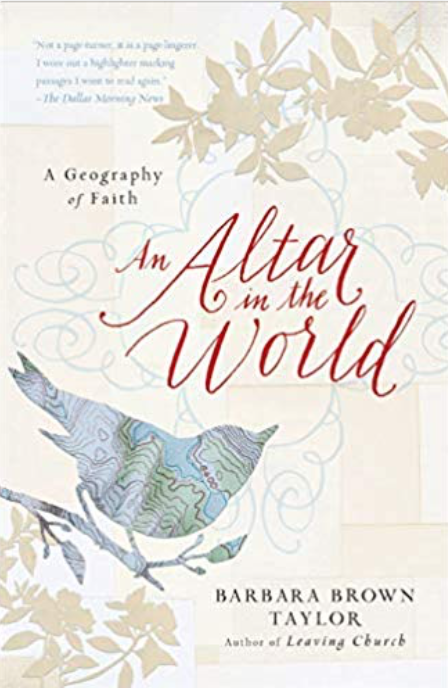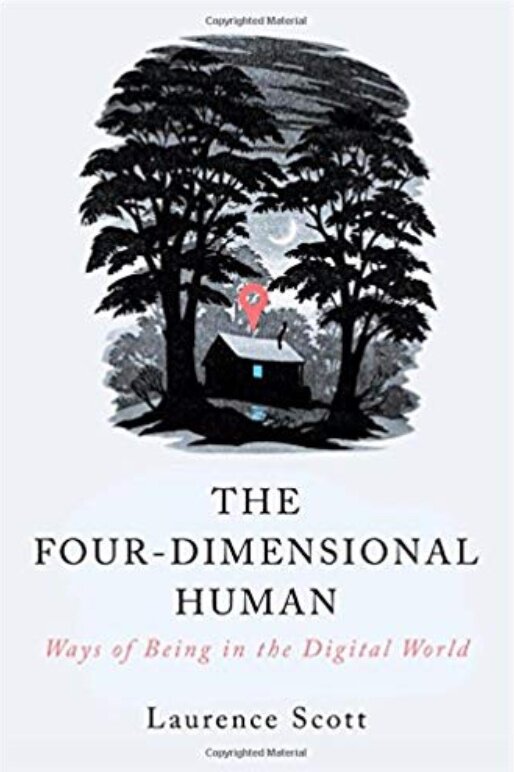This is Not a Top Ten List
“Ugh,” I messaged a friend the other day. “What?” she asked in return. “Tis the season for all the top ten lists and I’m already over it,” I replied (or something like it). My inner Scrooge is on full throttle between Thanksgiving and Christmas, which I suppose is why we celebrate Advent, the darkness growing brighter. December 10th still feels awfully dark to me though.
My ire is not completely undeserved though when regarding top ten lists, particularly when they are of books. It doesn’t matter where one falls on the political, theological, or academic spectrum, there will always be a temptation to concentrate our reading material with plenty of confirmation bias. We are humans, after all, and we prefer the easy way and to always be right. This morning I wrote the following and posted it on Twitter: “‘Best books’ lists are a good time to take stock of the sites we frequent. If all their top books are from one genre, one theological persuasion, one gender, etc., it’s a good bet that their writer/editor doesn’t read widely. We should read widely & read those who read widely.” My caveat is, of course, unless the top ten list is titled something like, “Top ten books about exotic fruits in 2019” or “Top ten books by rodeo performers in 2019,” or something like it. Then, by all means, feel free to ostracize.
PS. I quite enjoyed Russell Moore’s top ten list for more reasons than I have space today.
AUTOBIOGRAPHY: During several road trips this year, Nate and I listened to Tara Westover’s Educated (which has been on everyone’s lists since it came out). There were moments while listening where I had to pause, take a breath, and sometimes share bits and pieces of my growing up years with Nate as we drove. The go-bag packed under her bed, the clear memories of Ruby Ridge (my father hovered by the radio and spread alarm whenever he ventured away from it, too), the moment when she realized that without a birth certificate she didn’t exist (I had a birth certificate, but no social security number until I was 21—and therefore no legitimate paying job, no driver’s license, no college education or way of getting it), her confession of not knowing what the Holocaust was (I knew about the Holocaust, but not until college—at 23—did I learn that Martin Luther King Jr. was not, as I thought, Martin Luther’s son and was, I realized, a figurehead in a civil rights movement I knew nothing about) and more I won’t share here now. Her story gutted me and surprisingly, has helped me do some deep inner work that needed to be done in me this year. Her courage to share candidly about the brokenness she endured growing up has helped me to say some of what I wrote above right out loud. I have felt other than my entire life and I found a comforting ally in her.
POETRY: I read a lot of Denise Levertov in college but not much of her since then. Earlier this year I picked up her Candles in Babylon for $2 at Half Price Books. In 2019 the news has been turbulent, frenzied, and faster than ever, so much so that much of the time I turn to poetry or Scripture if only to remind myself that history repeats itself and there is nothing new under the sun. Candles in Babylon explores “social commitment and the quiet wisdom born of solitude.” Both of which we need more of in 2020.
THEOLOGY: Who God Says You Are by Klyne Snodgrass. A friend recommended this to me at the first of the year and I boldly declared, hardly one chapter in, that it would make my best of 2019 list. It may have been a premature announcement, but not one I regret. I read this one slowly throughout the year, letting each chapter truly bear weight on who I am, was, and want to be. I hope many Christians will read this book and truly allow its implications to form them as whole people. For too long we have been lopsided in our formation and Snodgrass has written a helpful and corrective primer for us.
SPIRITUAL DISCIPLINE: I reread Ruth Haley Barton’s Sacred Rhythms this year because it encouraged me so last year. I simply took a chapter every few weeks and allowed myself the space to be honest about my resistance to particular spiritual disciplines. I am not by nature a disciplined person, but am by nature very drawn to rhythms and predictability. I simply struggle to get myself there. Ruth’s way of communicating is soft and gentle and familiar, and yet holds out the ideals of being disciplined as though it were a gift and not only work.
FICTION: A Gentleman in Moscow by Amor Towles. I bought this one from a small local bookstore while we were on vacation in Santa Fe in November and quickly realized it was not “light vacation material.” That said, it is an excellent book. Rarely have I read something with such deeply distinctive characters and with a setting that should lend to boredom, I found I never was. One of my professors in my art minor always told us that “constraints are necessary for good art,” and not to give away too much, but Count Rostov is nothing if not constrained.
MEMOIR: An Altar in the World by Barbara Brown Taylor. The fussies among you will fuss at me for this one I’m sure, but as I said above, read widely. There were a few points along this read where my brow furrowed and I thought, “My, that’s strange,” but overall, I liked this book immensely. Taylor is a beautiful wordsmith and her admonitions to her readers to notice, get lost, wake up, encounter others, and more, were all needed for me at this juncture of life.
PHILOSOPHY: The Four Dimensional Human by Laurence Scott. I confess I bought this one for the cover alone. I also choose wine for the same reason. It was just too clever and eye-catching. It also surprised me inside too. I’m listing it under philosophy, but it also read a bit like memoir, a bit like journalism, a bit like sitting at a dinner table while the candles burn low listening to someone wax on eloquently about a subject almost too tired to say much more about. Scott writes about technology in an almost wholly untechnological sense. He is more interested—and wants us to be more interested—in what technology does to our humanness, our ways of being in the world. It took me a few weeks to really get into this one, but when I finished it, I was glad I did.
SELF-HELP: I have never read anything from Parker Palmer, but his Let Your Life Speak came highly recommended to me by someone this year. It’s a short book, self-deprecating and honest, written in a way that only those in the latter years of their life can write something. I have always assumed that by 40 one should know their vocation and be on the path to the second half of it, but I am finding more and more vocation is a somewhat slippery thing and every time I think I know it, it morphs slighting into something else. Palmer’s words made me laugh and cry, and a time or two they made me think, “I have gotten so much wrong in my life,” but then he also comforted and made space for listening in the way that Quakers do.
THEOLOGY: A friend sent me a little package a bit ago with A Theology of the Ordinary by Julie Canlis in it. I saw the short documentary by her husband Matt Canlis earlier in the year and have heard of the Canlises for years from a dear mutual friend of ours, but hadn’t yet read this very short little book. My benefactor told me she read in an afternoon but I didn’t. It took a few for me because though it is short, it is not easy. Canlis writes on what it means to live theologically in our regular, ordinary lives not because it is the cool thing to talk about these days, but because it is absolutely necessary to our being in the world and in our being missional while we do it.
. . .
These are the best books I read this year, nine of them, not ten, because I just couldn’t with another top ten list ;) I hope one or two of them might encourage you as well. And again, I just want to encourage you and me and everyone we know to read widely, read earnestly, read differing points of view, read books too difficult to understand and read ones that seem too easy. The only way to become a good and discerning reader is to read that which causes you to stop, reread sentences, paragraphs, perhaps scratch your head a time or two, laugh, cry, let the weight of the words bear on you in their fullness. Perhaps you leave the words right where they are, but sometimes, once in a while, one sentence or paragraph or whole book will leave you marked forever. Maybe 2020 will be the year for that.









